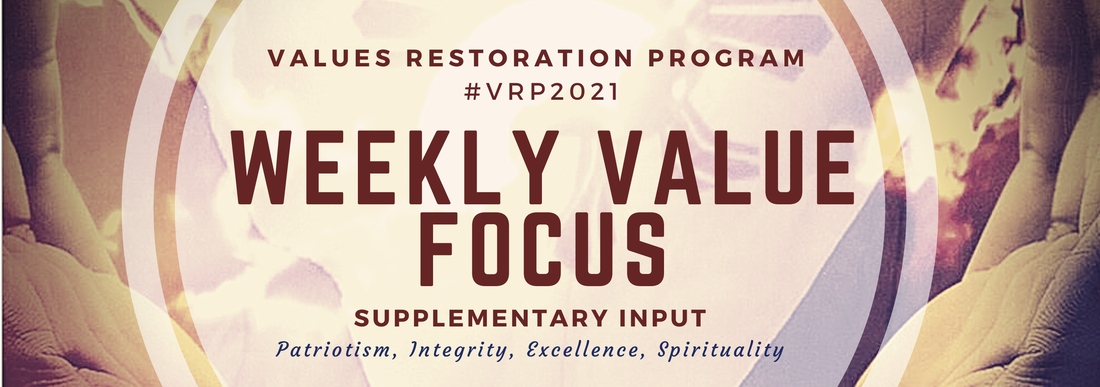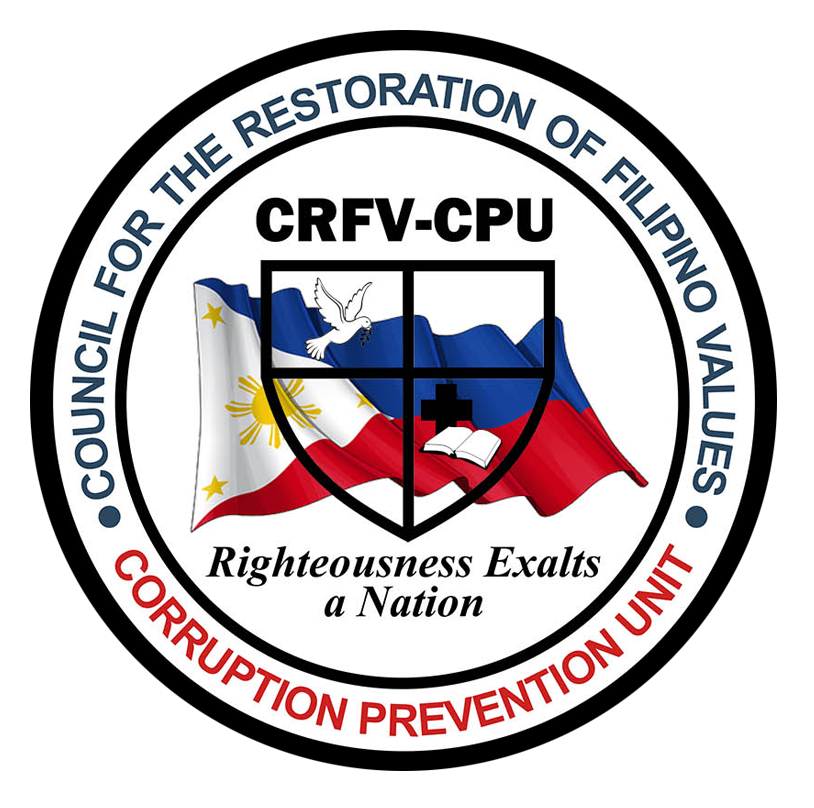|
One striking scene in a 2015 movie “Do You Believe?” where an old couple was having an emotional conversation. The wife asked her husband, “Where was God when we lost Cathleen?” They lost their one and only daughter years ago in a car accident caused by a drunk driver. For many years the couple was not able to move on from their loss. This paralyzed them from moving forward and allowed grief and disbelief to rule over them for years. In this scenario, they are facing the moment of truth to decide to believe again, let go of the pain of grief and let God take over.
The ongoing battle against this pandemic is getting so much intense that there is an increased rate of morbidity, mortality, suicide, and unemployment all over. We also find health workers and other front liners express their exhaustion due to surging number of COVID 19 cases in our nation. It is indeed another year of battle against this unseen enemy where we need to be stronger and firmer to what we believe to survive. When everything is out of our control, when everyone is under panic and exhaustion; when we ourselves suffer and are being affected by this ongoing battle, will we still believe or will we question like the wife asked? “Where is God?” Are we going to stop and give up? Our faith in ourselves, to others and to God determines the outcome of this worldwide battle. Will we lose or are we going to win? Going back to the movie stated above, the husband answered his wife, “I will tell you where God was. He was asking that driver not to take another drink, begged the bar tender not to serve it to him, He is hoping that the driver would call the cab and do anything for him not to get behind that wheel but it was all over and He cried just like we did….belief is an action- it’s time for us to act, we got to get back up and start living again. I wanna do more with this time I’ve got…” We might think that we are in the losing side in this battle because our unbelief blinds us from seeing God move in our midst. Our unbelief takes us away from our miracle. The author of Hebrews says that faith is being sure of what we hope for and certain of what we do not see. It is also defined as complete trust or confidence in someone or something. This situation where we are right now calls us back to have faith – to believe in ourselves, to believe in people and most specially, believe in the Sovereign God, whose ways are higher than our ways, whose thoughts are higher than our thoughts and whose plans are higher than our plans. This pandemic and its effect should not be the reason to stop us from believing. It should be the driving force that will strengthen our grip to ourselves, to others and to God. This is not the time for us to give up! It is the time for us to believe that we will overcome this crisis, as the common saying says, “This too shall pass.” Faith will always remind us that we are not alone in this battle. We have God whispering: "My precious child, I love you and will never leave you. Never, ever, during your trials and testings. When you saw only one set of footprints, It was then that I carried you." (MAT, CRFV)
0 Comments
Dictionary defines diligence as a careful or persistent work or effort while focus is defined as a point of concentration. This value therefor consists of two behavioral components that were put together as one. These are being diligent and staying focused. These varies in feature yet complementary by nature. One emphasizes methodology or manner of doing while the other highlights attentiveness to a certain goal or vision. When they become a constant practice, a lifestyle, or work ethics, it generates productivity characterized by excellence. It promotes not only quantitative but also qualitative type of work which is beneficial to all forms of endeavor. It induces profitability and marketability of work outputs. It is not only hitting the target but also giving the best service to the public. Along with the increase of production is customer or clientele satisfaction.
The observance of this value is a bit challenging during this pandemic. There are programs and projects that were listed at the annual plan by different government agencies or business entities that may not be implemented due to realignment of budget, business reverses, and other adverse effects of the existing crisis. Though these gigantic limitations are inevitable, everyone is still encouraged to remain diligent with focus by whatever means possible. The “Build, Build, Build” program of the present administration is one of the examples. There are already completions of the small-ticket projects in the past and the contractors or engineers are endeavoring to still accomplish the big-ticket projects that were put in place. In view of the meaning of diligence with focus, it must be an established principle that any work began are meant to be accomplished. It is very unprofessional to see a work being started one after the other without finishing anything. Such sporadic way of doing things is opposed to the aim of ensuring high standard in public service and ease of doing business. It indicates double-mindedness or mental instability which destroys confidence or reliability towards the employee or worker concerned. It also perpetrates the negative idea of being “jack of all trades yet master of none” due to inconsistency and lack of expertise as a result of haphazard task. One of the common teachings that we often hear from the trainings of the Council for the Restoration of Filipino Values is to be part of the finishing generation and not the finished generation. It connotes the attempt to fulfil a destiny and not to withdraw along the journey or from the line of battle. However, this sublime persuasion should also be applicable to the attitude of finishing any sort of endeavor rather leaving things undone. Learning this virtue should inspire us to reflect and assess our past and present undertakings. Did we do well in the execution of our functions? Are there tasks that need careful attention or has to be completed thoroughly? What is our usual response or reaction when we are faced with difficulties in the process? Do we find ways to solve the problem rather than simply abandoning our duties? Answering these questions will help us rate ourselves on how far have we gone in applying the value of diligence with focus. (NAS, CRFV) Purity is a prerequisite for usefulness and effectiveness. A thing cannot be useful or become less effective if its nature was compromised or weakened. A gasoline, for example, cannot be used for the purpose for which it was intended if it was mixed with water or other chemicals. The same is true with a liquid detergent. Its effectiveness deteriorates if it was diluted with water. Applying the same principle in natural life, particularly in a work setting, a person who is impure cannot be fully used for which he or she is employed because his or her intentions may have been marred by other things that divert his or her attention. He or she may also become less effective for work as his or her focus and energy are now divided and infused into other concerns. Such impurity in whatever aspect makes himself or herself disqualified from remaining in employment as the future of the enterprise, institution, or agency is endangered with his or her presence.
As we just celebrated this Lenten season in remembrance of the death and resurrection of Jesus Christ at the cross, all the more that we should be inspired to pursue purity in our mind and heart in order that His sacrifice will not be in vain. Based on Christian perspective, the works of Jesus Christ on the cross such as the shedding of His blood has cleansed us from all unrighteousness. It paved the way for us to be pure inside out. It gave us the capacity to turn away from evil and all forms of temptation. For this reason, we should not remain in our sins. Wrongful desires and corrupt motives should not have any part of our soul. The benefits of purity are plain and simple. It is our best defense and makes us untouchable. It serves as our protection from false accusations. It also gives us a leverage for promotion as it cultivates the character trait of trustworthiness and reliability. It nurtures confidence from the management or from a superior in a workplace. Our blameless standpoint will make us cut above the rest as it is free from heavy loads and burdens that often derail us from forward and upward thrust. Finally, it produces physical wellness. Medical science is persuaded that bitterness, hatred, anger, and other types of negative emotion contaminates the soul and creates negative body reaction. According to some experts, negative emotion releases stress hormone that eventually weaken our immune system that makes our body more prone to illness. On the other hand, purity in thoughts is also important to deal with as it is vital for success. The product of imagination affects our decision. What we think and believe in is what we pursue. As Winston Churchill said, the positive thinker sees the invisible, feels the intangible, and achieves the impossible. Nothing beats a pure mind if we are to climb the ladder of victory, otherwise, we surrender in the process. This makes us understand why Apostle Paul advised us in this manner: “Finally, brethren, whatever things are true, whatever things are noble, whatever things are just, whatever things are pure, whatever things are lovely, whatever things are of good report, if there is any virtue and if there is anything praiseworthy—meditate on these things" (NAS, CRFV) |
CRFV Winning TeamA company of men and women who have committed their lives to the cause of national transformation. Archives
July 2024
Categories
All
|
Our Services |
Our Organization |
SupportSupport Page
FAQ Terms of Use |
Copyright © 2015 | Baguio City, Philippines 2000 | 074-424-1497 | [email protected]


 RSS Feed
RSS Feed
